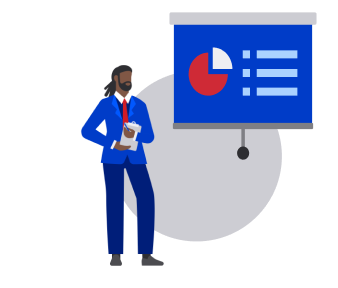FDIC insured

FDIC-Insured - Backed by the full faith and credit of the U.S. Government

Find the best business savings account for you.
Basic Business Savings
Start saving with online access to funds and no monthly maintenance fee as long as you maintain a $500 minimum daily balance.1
- Transfer funds to your U.S. Bank checking account by phone or online.
- Review your business checking and savings accounts in one combined monthly statement.
Business Savings Sweep
Take everyday balances and automatically sweep (move) excess balances daily from your U.S. Bank business checking account to this savings account.
- Set a target checking balance to maintain (minimum of $10,000 required).
- Unlock a higher interest rate as your balance grows.
- Accrues interest daily and pays interest monthly.
Open a business savings account
Have these documents ready:
1. Your business’ Employer Identification Number (EIN) or tax ID number (sole proprietors can use the owner’s Social Security number)
2. Articles of Incorporation, Articles of Organization, or a charter or a similar legal document that indicates when your company was formed (not required for sole proprietors)
3. Government-issued photo ID and Social Security number for you and anyone else authorized to sign checks or make transactions on behalf of your organization

Looking for more ways to manage your business’ money?
U.S. Bank business checking accounts work with payment tools and support varying levels of monthly transactions, including deposits and check and debit card purchases.
Get answers to common savings account questions.
The primary purpose of a savings account is to protect your money for future use.
A savings account offers you an interest rate on the money in your account to help your savings grow.
- What is the yearly interest rate for this account?
- Will I pay a fee to open this account?
- Does this account automatically charge a monthly maintenance fee?
- Are there certain activities I can perform or minimum balances to meet in order to waive a monthly maintenance fee?
- Do I need to keep a minimum balance in the account to avoid fees?
- What other fees apply to this account? (Examples: transactions outside your financial institution, foreign transactions, wire transfers)
- Can I withdraw money from this account at an ATM?
- Can I make payments from this account?
- Can I make recurring automatic transfers from my checking account into this savings account?
U.S. Bank CDs are an excellent low-risk investment option if you’re able to devote funds for longer periods of time. CDs require you to leave your money untouched for an agreed- upon time, known as the term length, and usually have a fixed rate.




